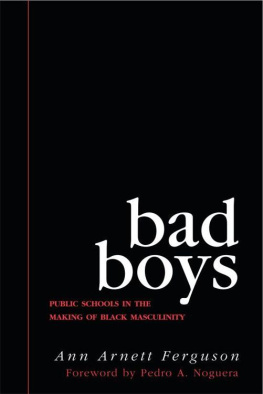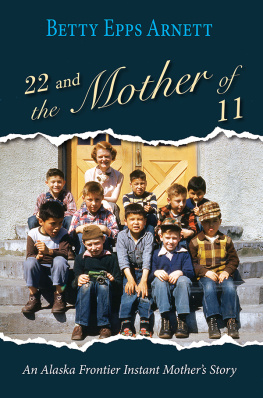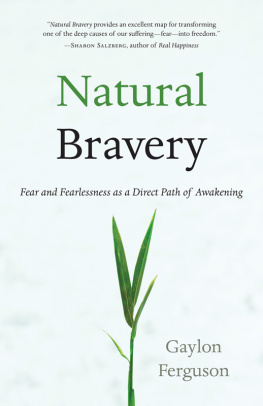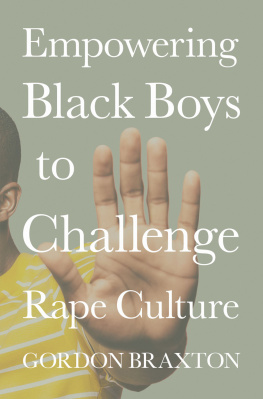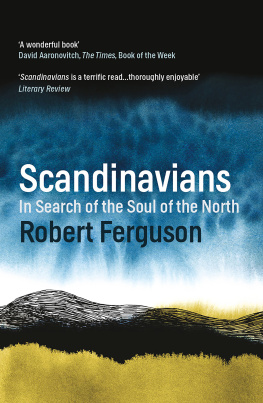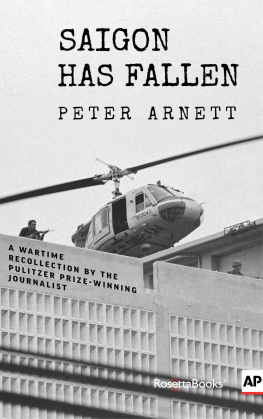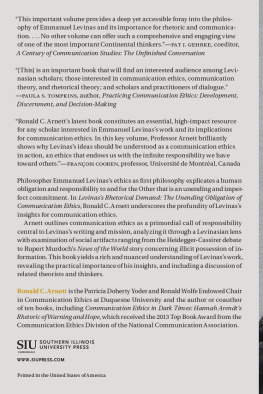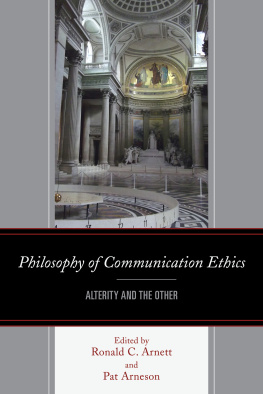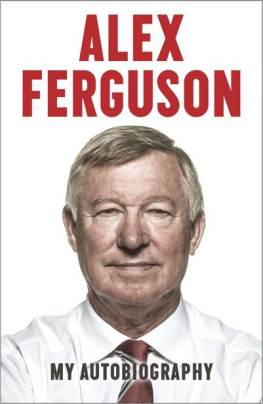Ann Arnett Ferguson - Bad Boys (Law, Meaning, And Violence)
Here you can read online Ann Arnett Ferguson - Bad Boys (Law, Meaning, And Violence) full text of the book (entire story) in english for free. Download pdf and epub, get meaning, cover and reviews about this ebook. year: 2020, publisher: University of Michigan Press, genre: Politics. Description of the work, (preface) as well as reviews are available. Best literature library LitArk.com created for fans of good reading and offers a wide selection of genres:
Romance novel
Science fiction
Adventure
Detective
Science
History
Home and family
Prose
Art
Politics
Computer
Non-fiction
Religion
Business
Children
Humor
Choose a favorite category and find really read worthwhile books. Enjoy immersion in the world of imagination, feel the emotions of the characters or learn something new for yourself, make an fascinating discovery.
- Book:Bad Boys (Law, Meaning, And Violence)
- Author:
- Publisher:University of Michigan Press
- Genre:
- Year:2020
- Rating:3 / 5
- Favourites:Add to favourites
- Your mark:
- 60
- 1
- 2
- 3
- 4
- 5
Bad Boys (Law, Meaning, And Violence): summary, description and annotation
We offer to read an annotation, description, summary or preface (depends on what the author of the book "Bad Boys (Law, Meaning, And Violence)" wrote himself). If you haven't found the necessary information about the book — write in the comments, we will try to find it.
Bad Boys (Law, Meaning, And Violence) — read online for free the complete book (whole text) full work
Below is the text of the book, divided by pages. System saving the place of the last page read, allows you to conveniently read the book "Bad Boys (Law, Meaning, And Violence)" online for free, without having to search again every time where you left off. Put a bookmark, and you can go to the page where you finished reading at any time.
Font size:
Interval:
Bookmark:
The scope of Law, Meaning, and Violence is defined by the wide-ranging scholarly debates signaled by each of the words in the title. Those debates have taken place among and between lawyers, anthropologists, political theorists, sociologists, and historians, as well as literary and cultural critics. This series is intended to recognize the importance of such ongoing conversations about law, meaning, and violence as well as to encourage and further them.
Series Editors: Martha Minow, Harvard Law School
Austin Sarat, Amherst College
RECENT TITLES IN THE SERIES
Bad Boys: Public Schools in the Making of Black Masculinity (with a new Foreword by Pedro A. Noguera) by Ann Arnett Ferguson
The Truth Machines: Policing, Violence, and Scientific Interrogations in India by Jinee Lokaneeta
Keeping Hold of Justice: Encounters between Law and Colonialism by Jennifer Balint, Julie Evans, Mark McMillan, and Nesam McMillan
The Jurisprudence of Emergency: Colonialism and the Rule of Law (with new Foreword and Preface) by Nasser Hussain
Archiving Sovereignty: Law, History, Violence by Stewart Motha
The Holocaust, Corporations, and the Law: Unfinished Business by Leora Bilsky
Curating Community: Museums, Constitutionalism, and the Taming of the Political, by Stacy Douglas
Refining Child Pornography Law: Crime, Language, and Social Consequences, edited by Carissa Byrne Hessick
The First Global Prosecutor: Promise and Constraints, edited by Martha Minow, C. Cora True-Frost, and Alex Whiting
Hybrid Justice: The Extraordinary Chambers in the Courts of Cambodia, by John D. Ciorciari and Anne Heindel
The Justice of Mercy, by Linda Ross Meyer
Dying Inside: The HIV/AIDS Ward at Limestone Prison, by Benjamin Fleury-Steiner with Carla Crowder
Sacred Violence: Torture, Terror, and Sovereignty, by Paul W. Kahn
Punishment and Political Order, by Keally McBride
Lives of Lawyers Revisited: Transformation and Resilience in the Organizations of Practice, by Michael J. Kelly
Among the Lowest of the Dead: The Culture of Capital Punishment, by David Von Drehle
Punishing Schools: Fear and Citizenship in American Public Education, by William Lyons and Julie Drew
Page iiiPUBLIC SCHOOLS IN THE MAKING OF BLACK MASCULINITY
Ann Arnett Ferguson
Foreword by Pedro A. Noguera
Ann Arbor
University of Michigan Press
Page ivCopyright by the University of Michigan 2000, 2020
All rights reserved
For questions or permissions, please contact um.press.perms@umich.edu
Published in the United States of America by
The University of Michigan Press
Manufactured in the United States of America Printed on acid-free paper
Printed on acid-free paper
New paperback edition first published July 2020.
A CIP catalog record for this book is available from the British Library.
Library of Congress Cataloging-in-Publication Data
Ferguson, Ann Arnett
Bad boys : public schools in the making of black masculinity / Ann
Arnett Ferguson.
p. cm. (Law, meaning, and violence)
Includes bibliographical references and index.
ISBN 0-472-11103-5 (cloth : acid-free paper)
1. Afro-American boysEducationSocial aspects.
2. Masculinity. I. Title. II. Series.
LC2771 .F47 2000
371.82996'073dc21 99-006950
ISBN 978-0-472-11103-9 (cloth : acid-free paper)
ISBN 978-0-472-08849-2 (pbk. : alk. paper)
ISBN 978-0-472-03782-7 (pbk. : alk. paper)
ISBN 978-0-472-12696-5 (ebook)
To Cole and Carly Rose
Page vi Page viiPage viii Digital materials related to this title can be found on the Fulcrum platform via the following citable URL https://doi.org/10.3998/mpub.11515236
Page ixDisrupting the School-to-Prison Pipeline by Responding to the Needs of Black Male Children with Support Rather than Punishment
Pedro A. Noguera, Distinguished Professor of Education and Faculty Director for the Center for the Transformation of Schools, UCLA
The killing of Trayvon Martin accomplished something that numerous policy reports and research studies failed to achieve. The murder of the unarmed boy, carrying nothing more than soda and Skittles as he walked home, drew sustained public attention to the precarious plight of black males. There is of course tremendous irony here, because the killer of Trayvon Martin was not convicted of a crime. Like Emmett Till, the black teenager murdered by a mob for the crime of looking at a white woman, Trayvon Martin also became a symbol, and not because of the hoodie he wore. For those who mobilized for justice, the killing of Trayvon Martin was further evidence that black males occupy a stunningly vulnerable status in American society.
The vulnerability of black males is particularly evident in education. On all of the indicators of academic achievement, educational attainment, and school success, African American males, and in many cases Latino males, too, are distinguished from other segments of the American population by their consistent clustering in categories associated with subpar academic performance and failure (Schott 2010). Similarly, on indicators associated with successenrollment in honors or gifted classes and advanced-placement courses, matriculation to college and degree attainment, etc.black and Latino males are vastly underrepresented. With few exceptions, these dismal patterns are Page x evident in urban, suburban, and rural school districts throughout the United States, and even in communities with relatively small minority populations (Majors and Billson 1992). Nationally, black males are more likely than any other group to be suspended and expelled from school. (It is worth noting that Trayvon Martin was suspended at the time of his shooting. See Fergus and Noguera 2010 and Gregory, Skiba, and Noguera 2010 for a discussion of racial disparities and school suspensions). This is even true for black males in preschool. A 2014 US Department of Education study found that one out of four black male four-year-olds had been suspended at least once.
In Bad Boys, Ann Ferguson explores the complex array of factors that contribute to the vulnerability of black males in school. Ferguson does this by examining how black male identities are constructed in schools, and by exploring why institutions ostensibly designed to help these students are so often the setting where problems such as labelling, academic failure, and excessive and frequent punishments begin. These issues are as relevant today as they were when the book was first published twenty years ago. Fergusons careful ethnographic research helps the reader understand how the preoccupation with order and control that is operative in many schools serving low-income children of color creates oppositional identities among black male students that schools generally find so problematic and difficult to contend with.
It is hoped that educators who find the social processes described by Ferguson familiar will become uncomfortable when reading her descriptions of them. More often than not, our schools disproportionately punish our most disadvantaged students. Too often, they do so through punishment practices that ostracize children and exclude them from learning. Rarely do such practices result in a change in behavior. Seeing them described in vivid detail should prompt educators to remember that their role is to provide support and guidance to students in need rather than allowing our schools to serve as launching pads for the so-called school-to-prison pipeline.
Next pageFont size:
Interval:
Bookmark:
Similar books «Bad Boys (Law, Meaning, And Violence)»
Look at similar books to Bad Boys (Law, Meaning, And Violence). We have selected literature similar in name and meaning in the hope of providing readers with more options to find new, interesting, not yet read works.
Discussion, reviews of the book Bad Boys (Law, Meaning, And Violence) and just readers' own opinions. Leave your comments, write what you think about the work, its meaning or the main characters. Specify what exactly you liked and what you didn't like, and why you think so.

